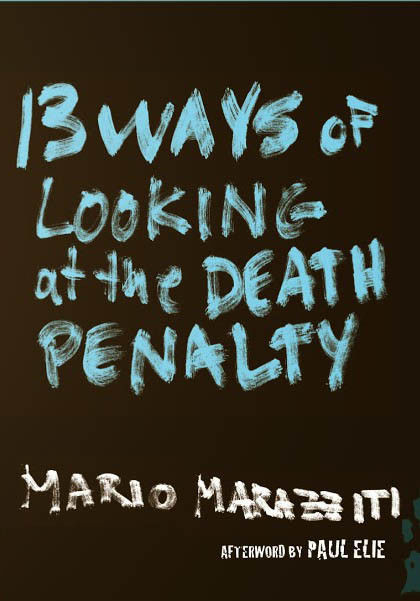International anti-death penalty advocate and author Mario Marazziti recently traveled to the Los Angeles area from his native Italy to discuss his new book, “13 Ways of Looking at the Death Penalty,” at a series of local events hosted by Catholics Against the Death Penalty Southern California and other organizations.
In an excerpt from his book, Marazziti describes his earliest memory of learning about the death penalty. In 1960, when he was just 8-years-old, he read a news story about a California man who was put to death. The article included sketches and detailed how a gas chamber works to end the life of a condemned man.
“I do not have many memories from those years … but I still remember those sketches of a man dying in a gas chamber,” wrote Marazziti. As a result of those impactful early memories and his lifelong Catholic faith, he cofounded the World Coalition Against the Death Penalty in 2002.
His international coalition work inspired “13 Ways,” which “exposes the profound inhumanity … of the death penalty” in the U.S., where capital punishment remains in use in 32 states.
On April 12, Marazziti shared many of his insights and experiences at the USC Caruso Catholic Center in Los Angeles during a book discussion co-sponsored by the archdiocesan Office of Restorative Justice, Pax Christi So Cal, JustFaith So Cal, Death Penalty Focus, St. Camillus Center for Spiritual Care and other groups.
“The whole [capital punishment] system tries to dehumanize those who are on death row, so that when the system kills [a convicted inmate] it’s convinced people that it has not killed a human being, but an insect, so there is no remorse [or public outcry],” said Marazziti, addressing the small group gathered for his presentation.
In his book, Marazziti urges the U.S. to follow in the footsteps of virtually every other industrialized democracy in the world, most of which have abandoned the practice of capital punishment. The death penalty, he argued, is the destruction of human life; is ineffective as a deterrent against future crimes; and is a purported “tool of justice” that is unjustly applied and disproportionality affects the poor, racial minorities and members of certain ethnic and religious communities, particularly in certain geographic areas across the country, most notably Texas.
“At least one-third of [U.S.] executions and death sentences take place in Harris County in Houston, Texas,” he said. “It depends on geography, not on justice.”
In response to the argument that the death penalty is the only true justice for the surviving relatives and loved ones of a person who has been killed, Marazziti offered the following thoughts: With the promise of “closure,” many families of murder victims remain “frozen in their grief,” initially when going through the arduous trial process, and, in cases where the accused is sentenced to death, it can take years, even decades, before it is carried out. Even then, the victory can feel hollow for families expecting to experience a sense of healing, he explained.
In addition, Marazziti noted, the risk of executing an innocent person can never be fully eliminated. On average in the U.S., one death row inmate has been found to be innocent and exonerated every three months since 1973. The latest was Anthony Ray Hinton, who on April 3 walked out of the Alabama prison where he had spent nearly 30 years on death row, becoming the 152nd person to be freed.
“Mario’s words and his book are very encouraging reminders that in other parts of the world where they have worked to end executions they [were successful] — it did happen,” said Father Chris Ponnet, pastor of St. Camillus Center.
“I think the challenge for us, especially in the L.A. Archdiocese, is that L.A. County produces the most death penalty verdicts in all of California. So we have a burden to say, ‘What can we do?’” he told The Tidings following the event.
Part of the solution is working with fellow faith partners as well as neighboring Catholic dioceses toward an initiative to end capital punishment statewide, he said.
“I also think it’s important to really make the point that consistent life ethic says that we are a Church that is not only against abortion, but against the death penalty, and against all forms of injustice that lessen or kill human life.”

